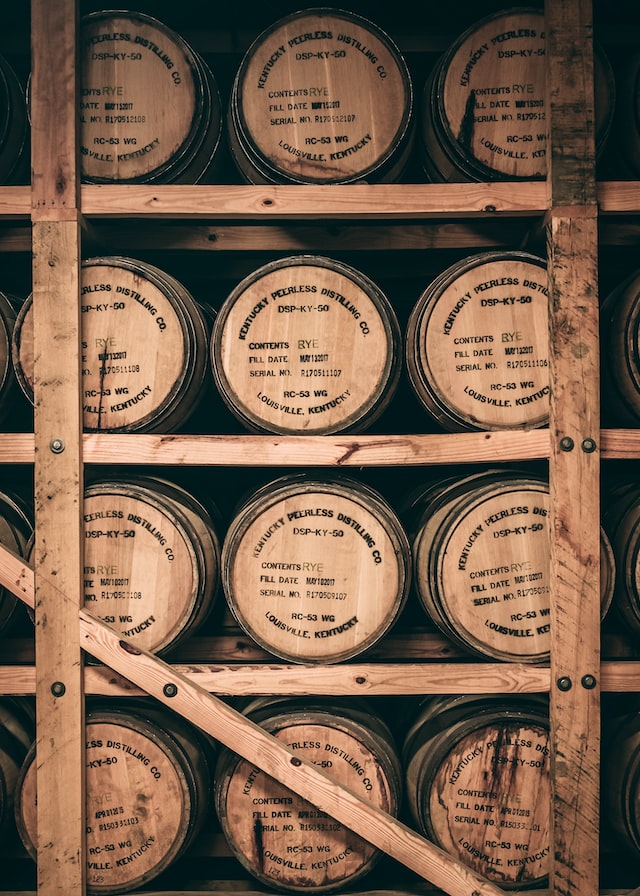City and county officials come out against House Bill 5
Published 10:35 am Friday, March 3, 2023

- (Photo by Daniel Norris on Unsplash)
|
Getting your Trinity Audio player ready...
|
Jessamine County and Nicholasville officials released a statement Tuesday night warning against the impact of House Bill 5 on local services like public schools, local libraries, and fire departments if it is passed by the state legislature this session.
House Bill 5, also known as the Bourbon Barrel Tax Break, would gradually eliminate property taxes for companies storing and aging liquor products in warehouses across the state. Starting in 2026, the property tax will be completely phased out by 2039.
The state property tax rate for these warehouses is already low at $0.05 per $100, compared to the state’s tax rate for tangible property, which is $0.45 per $100.
Trending
House Representative Jason Petrie, R-Elkton and House Speaker David W. Osborne, R-Prospect, sponsored this bill. According to the Kentucky Registration of Election Finance, Speaker Osborne received a $2,000 campaign donation for last fall’s general election race from the Kentucky Distillers Association Bourbon Trail Political Action Committee (PAC).
Speaker Osborne did not return a request for comment.
“The passage of House Bill 5 would add another tax break for the highly successful bourbon industry, already one of the most tax-exempt industries in the state,” reads the statement released by city and county officials.
Indeed, this isn’t the first tax break the industry has received. The Bourbon industry began lobbying for the bourbon barrel tax repeal in 2014. The 2015 General Assembly responded to this lobbying with a tax break. This break granted distilleries a corporate income tax credit against the amount of barrel taxes paid. The state bore the brunt of these tax breaks, with local governments and school districts still receiving tax payments at this point.
Again, in 2018, the General Assembly reduced the corporate tax rate from 6% to 5%- significantly reducing the income tax the bourbon industry paid to the state.
And five years later, the industry has been able to flourish. Last December, Gov. Andy Beshear announced 2022 as a record year for growth in Kentucky’s $9 billion bourbon and spirits industry – as the industry celebrated a whopping $2.1 billion in new investments.
Trending
Jessamine County Schools Superintendent Matt Moore said the school district will lose $265,000 annually.
Jessamine is one of 28 Kentucky public school districts that will be directly impacted, although, because of how state funding is dispersed, all 128 counties will lose funding.
“For us, that amount is equivalent to five teachers, or 15 bus drivers, or four counselors,” Moore said, adding that several other districts will lose millions of dollars.
In addition to the public loss that would occur from this repeal, Kentucky Public Schools has already lost significant state funding over the past 14 years. Since 2008, the state’s financial contribution to public education has decreased from 60 percent to 46 percent. Local taxpayers have had to pick up the slack of this loss, with their contribution to public education having increased from 40 percent in 2008 to 58 percent today.
According to data gathered by the office of the Jessamine County Judge-Executive, the Jessamine County Fiscal Court stands to lose $106,000 if House Bill 5 is passed. Judge David West said that other county agencies will lose funds as well.
“In our county, fire protection, our local health department, library, and other governmental services all rely on this revenue stream. As House Bill 5 currently reads, there are no provisions for local communities across the state to recoup the funds lost if this legislation is passed,” West said.
Nicholasville Mayor Alex Carter joined Judge West and Superintendent Moore on speaking on his concerns of House Bill 5 and its impact on the city, saying that the funds that Nicholasville receives from the spirits industry’s property taxes help provide critical services to his community.
“Just as our citizens do their part to help fund essential services including police, fire, schools, and libraries, the bourbon industry that is benefiting from many of these very same services should also do their part,” Carter said.





